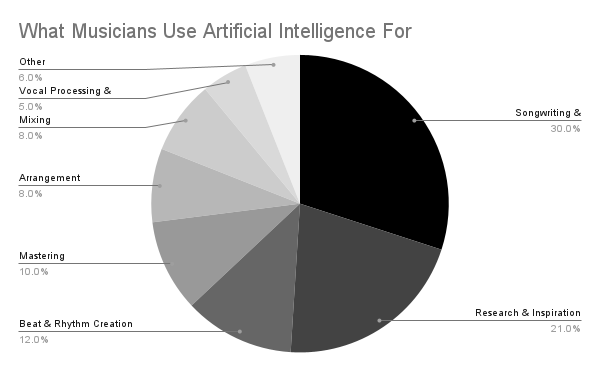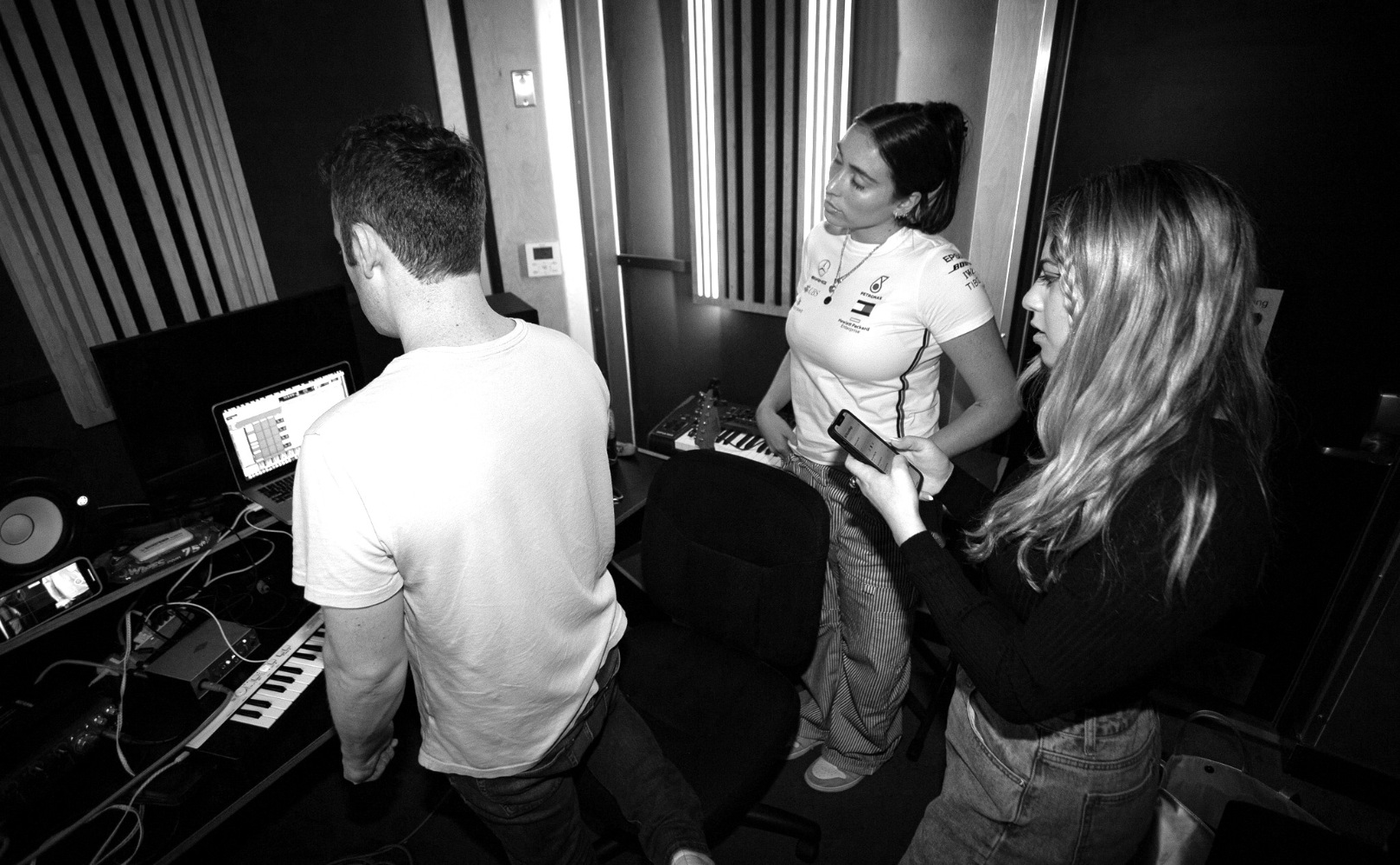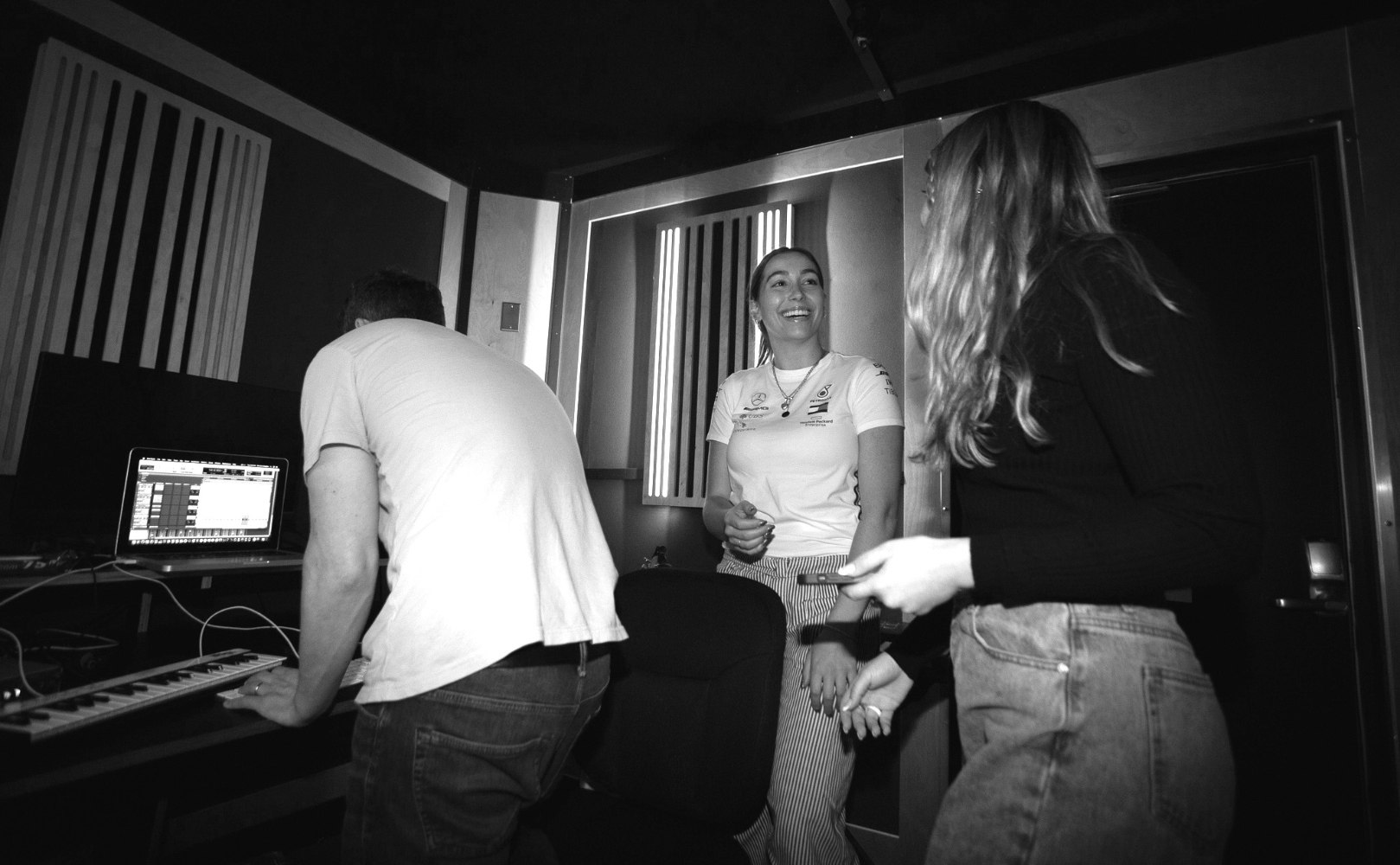
■ Features
These are the top 10 AI tools for musicians, according to musicians.
In 2023, a revolutionary shift has taking place in the music industry as artificial intelligence (AI) emerges as a vital collaborator for artists. A recent survey of over 1,000 musicians revealed that 25% of them are already incorporating AI into their studio work, 72% of which reported positive experiences with AI tools.
We asked these musicians about the stages of music creation where AI was most beneficial. The results showed that 30% of musicians found AI exceptionally useful during songwriting and composition, 21% leveraged AI most for research and inspiration, 12% for beat and rhythm creation, and 10% for mastering their tracks.

We went on to ask which AI tools artists were using to create music. Below, we present the top 10 AI tools for musicians, as chosen by musicians themselves:
Best For: Songwriting and composition
ChatGPT is the most renowned AI tool across industries, and artists are using ChatGPT for music more than any other tool, with lyric writing being the most common application:
"ChatGPT can generate melodic lyrics, rhymes, and variations that seamlessly fit my melody."
Another artist shared:
"I've used ChatGPT to suggest chord variations when I'm out of ideas."
ChatGPT is also handy for technical solutions:
"I used ChatGPT to help create specific plugin settings, replicating sounds and instruments from existing songs."
Best For: Mastering music
Mastering music has traditionally been complex and costly, but iZotope Ozone 11 simplifies it with a one-click solution, streamlining the mastering process:
"I use the AI tracking in Ozone to mix and master my songs. The results exceed my initial expectations."
Best For: Separating stems for remixing and sampling
LALAL.AI excels in stem-splitting, allowing the isolation of specific elements without compromising quality. Artists use this tool to separate stems from their own productions:
"I have used LALAL.AI to help separate stems used in my production."
Artists are also using LALAL.AI to isolate stems from other tracks for sampling or remixing:
"LALAL.AI has allowed me to extract parts from a song so I can then remix it and add my own elements."
Best For: Inspiration, support for beginners, writers' block
SongStarter generates a track for musicians to edit, serving as a starting point based on genre, lyrics, or even emojis as prompts:
"SongStarter is like a music-making game on your phone. It makes it easy to start production, perfect for beginners."
Best For: Audio segmentation and manipulation
GOYO is a powerful voice separator that aids in de-noising, de-reverbing, and de-voicing audio for enhanced quality. Musicians rely on GOYO to improve imperfect recordings:
"I use GOYO noise remover because I record in a noisy neighborhood."
Another artist noted GOYO's usefulness in making remixes:
"I've removed reverb from recordings with ease and isolated vocals for remixes using GOYO."
Best For: Composition
AIVA, the "Artificial Intelligence Virtual Artist," composes original music tracks in seconds based on user preferences, effectively breaking creative blocks:
"I have used AIVA to create some ideas that I can then sample, or to generate further ideas that I build on myself. It gives a great 'inspiration boost' when I feel creatively stuck in a rut."
Another musician explained they used the tool specifically for arrangements:
"AIVA helps me find harmonic progressions."
Best For: Melody composition and exploration
AWS DeepComposer allows users to play a melody and transform it into a composition using generative AI, catering to varying musical and machine learning knowledge levels:
"It's like having a collaborator in the studio, but it's AI."
Best For: Isolating vocals and instruments in any song
Moises App excels in isolating vocals and instruments with impressive accuracy, providing a valuable toolkit for creative manipulation:
"When I sample music, it separates the stems of an original track without having to go into the studio where it was recorded. Moises is 90% accurate depending on the track."
Best For: Experimental music composition and artistic exploration
Magenta, an open-source project by Google, explores machine learning's potential in creative arts, allowing artists to experiment with unique compositions and performances:
"I use Magenta as a melody generator, but it also edits certain drums and patterns, providing a versatile canvas to start a song."
Best For: Separating vocal and instrumental stems with a single click
StemRoller efficiently separates vocal and instrumental stems with a single click, offering a free and accessible solution:
"I use StemRoller to extract elements from existing music for experimentation."

The music industry is witnessing a steady influx of new AI tools, and musicians are increasingly open to experimentation, creating demand. While only 25% of artists in our recent survey currently use AI in their music creation, an impressive 46% of those not yet using it expressed a willingness to explore AI tools in the future. That being said, there is still some stigma around using AI tools to produce music, over half of musicians would conceal AI use, to avoid a negative response from listeners.
The best way to determine if AI music tools can enhance your process is to get hands-on with one or more of them in your next recording studio session.
